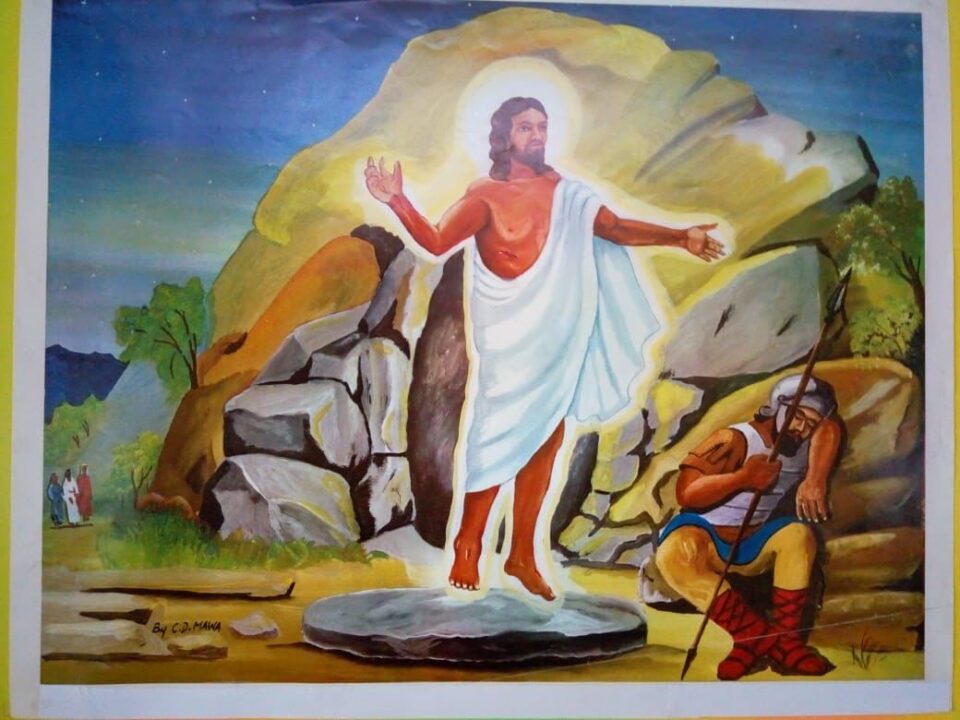- Contact us on - Contactez-nous sur - Contacte-nos em
- +233-30-277-8867/8
- +233-30-277-2548
- secam@secam.org
Bishops in Zimbabwe Assure Families of Love and Support
Bishops in Zimbabwe Assure Families of Love and Support
CANAA || By Father Don Bosco Onyalla, Nairobi || 24 October 2016
 The Catholic Bishops in Zambia have reached out to families with a message of love, assuring them of their support “especially at a time when families feel the pressure of political tension, economic collapse and other forces.”
The Catholic Bishops in Zambia have reached out to families with a message of love, assuring them of their support “especially at a time when families feel the pressure of political tension, economic collapse and other forces.”
They made this assured in a pastoral letter to families in Zimbabwe made available on Mission Sunday, October 23.
The letter discusses a variety of family issues, among them sexuality integrated into humanity, love and creation, faith and marriage, love within marriage, the pprotection of children, equality and human dignity.
The Bishops also touch on economic challenges and poverty, family health, as well as human trafficking.
Below is part of the Pastoral Letter the Bishops of Zimbabwe released on Sunday, October 23.
The Family in Zimbabwe In the light of Amoris Laetitia, The Joy of Love: A Pastoral Letter of ZCBC To All Families
Mission Sunday 23 October 2016
Introduction:
As Bishops of Zimbabwe we wish to promote and protect, support and strengthen the Family in every way, especially at a time when families feel the pressure of political tension, economic collapse and other forces.
The Bishops of Southern Africa (IMBISA: Angola, Botswana, Lesotho, Mozambique, Namibia, Sao Tome e Principe, South Africa, Swaziland, Zimbabwe) looked at the situation of the Family at their IMBISA Plenary Assembly in November 2013, held in Gaborone/Botswana, consulting married people and making use of their experience, as they had done in 1998 in Windhoek/Namibia.
In 2014 at a special Bishops’ Synod and in 2015 at a General Synod, Bishops of the whole world debated marriage and family. In 2016 Pope Francis, as Bishop of Rome and universal pastor, making use of the wisdom and pastoral experience of the whole Church, wrote and published the Apostolic Exhortation THE JOY OF LOVE (Amoris Laetitia) for all pastors, for the guidance of all married people, for all preparing to get married and for all whose marriages have met with difficulties.
As the title of the 166-page document suggests, Love is at the centre of marriage and family which gives great Joy.This is indeed Good News.
The 17th Plenary Assembly of SECAM (Symposium of Episcopal Conferences of Africa and Madagascar met in July 2016 in Luanda (Angola) on the theme: “The African Family, Yesterday, Today and Tomorrow in the Light of the Gospel” and addressed a message of hope and solidarity to the Families in Africa as well as a set of very practical recommendations for the pastoral ministry of the family in Africa.
The message which we as Bishops of Zimbabwe wish to conveyis meant to cheer and encourage, fill with hope, to give praise, understanding and supportto all married couples and families.
Our God and Creator has made Man and Woman for Love which is to give Joy.If this joy seems to have been eroded by doubt and distrust then we want to recover it.
“We need a healthy dose of self-criticism,” Pope Francis recommends (The Joy of Love, No.36). The recommendation is directed at the pastors of the Church, catechists who give marriage instructions, parents, family elders, and teachers of the faith.
“There is no sense in simply decrying present-day evils, as if this could change things. Nor is it helpful to try to impose rules by sheer authority.” (No 35).
“We have long thought that simply by stressing doctrinal, bioethical and moral issues, without encouraging openness to grace, we were providing sufficient support to families, strengthening the marriage bond and giving meaning to marital life” (No 37). “We have often been on the defensive, wasting pastoral energy on denouncing a decadent world without being proactive in proposing ways of finding true happiness…..Jesus…never failed to show compassion and closeness to the frailty of individuals like the Samaritan woman or the woman caught in adultery” (No 38).
Pope Francis stresses “openness to GRACE” and the “COMPASSION OF JESUS”. Our Holy Father urges us that we correct the imbalance in our catechesis where “we speak more about law than about grace, more about the Church than about Christ, more about the Pope than about God’s word” ( Pope Francis, EvangeliiGaudium, No. 38). He urges us to act as Jesus did and always “show compassion and closeness to the frailty of individuals like the Samaritan woman or the woman caught in adultery” (Joy of Love, No.38).
This means of course that we ourselves as pastors and teachers must likewise be ‘close to individuals’, i.e. close to married couples, must walk with them, share their joy, but also their anxieties and worries and “carry their burdens”. We must open for them an understanding of grace, i.e. the gift Christ gives us of love and mercy, compassion and the strength ‘to take up our cross’ together.
What a dramatic challenge to pastors and shepherds who thought that “getting people married” was merely an administrative act![1]
The Holy Father asks pastors everywhere to be kindhearted and sensitive to the people in their care rather than judgmental and formal. This is after all no more than we learn from the Good Shepherd.
Sexuality integrated into Humanity
“Male and female he created them” (Genesis 1: 27). Sexuality is an integral part of every human person. A person is either entirely male or entirely female. Man and woman are equal in their human dignity and yet different. Their difference is physical, psychological, mental, spiritual.
In western culture there is a tendency to play down the difference and deny the ‘unity in diversity’ between the sexes. Young people are no longer helped to accept their identities as men and women.
But God created man for woman and woman for man. “Same-sex-unions” are not part of the Creator’s design. There is no free option. Men and women should be happy about their complementarity, helping each other with their various gifts.[2]
Sexuality is not merely an uncontrollable drive or instinct. Men tend to think that they have no control over their bodies and expect the woman to “take care of herself” if she falls pregnant. Accepting responsibility for the other, and not leaving the woman all alone, makes their mutual LOVE REAL, and gives it depth. This is the “Joy of Love”. The pregnant wife is sure that her husband will not leave her alone, and the husband accepts the child as his and his wife’s, the fruit of their love.
We are responsible for how we make use of this gift. That is why there is need to educate young people about how to relate to their own bodies and behave towards persons of the other sex. Our sexuality has its place in marriage as a lifelong and fruitful relationship. For us as free persons the intimate sexual relationship gives expression to our mutual love and faithfulness.
When the married partners are giving themselves to each other in sexual intimacythey are responsible for each other.
“I care about you, and you care about me.”
“Your burden is mine, and my burden is yours.”
“Your joy is mine, and my joy is yours”.
“Therefore a man leaves his father and mother and clings to his wife, and they become one flesh” (Genesis 2: 24). “If one member suffers, all suffer together with it; if one member is honoured, all rejoice together with it…..Now you are the body of Christ and individually members of it” (1. Cor. 12: 26 – 27) Man and woman, becoming “one flesh” or “one body”, have everything in common. What is “mine”, is not just mine, what is “yours”, is not just yours, it is always “ours”.

